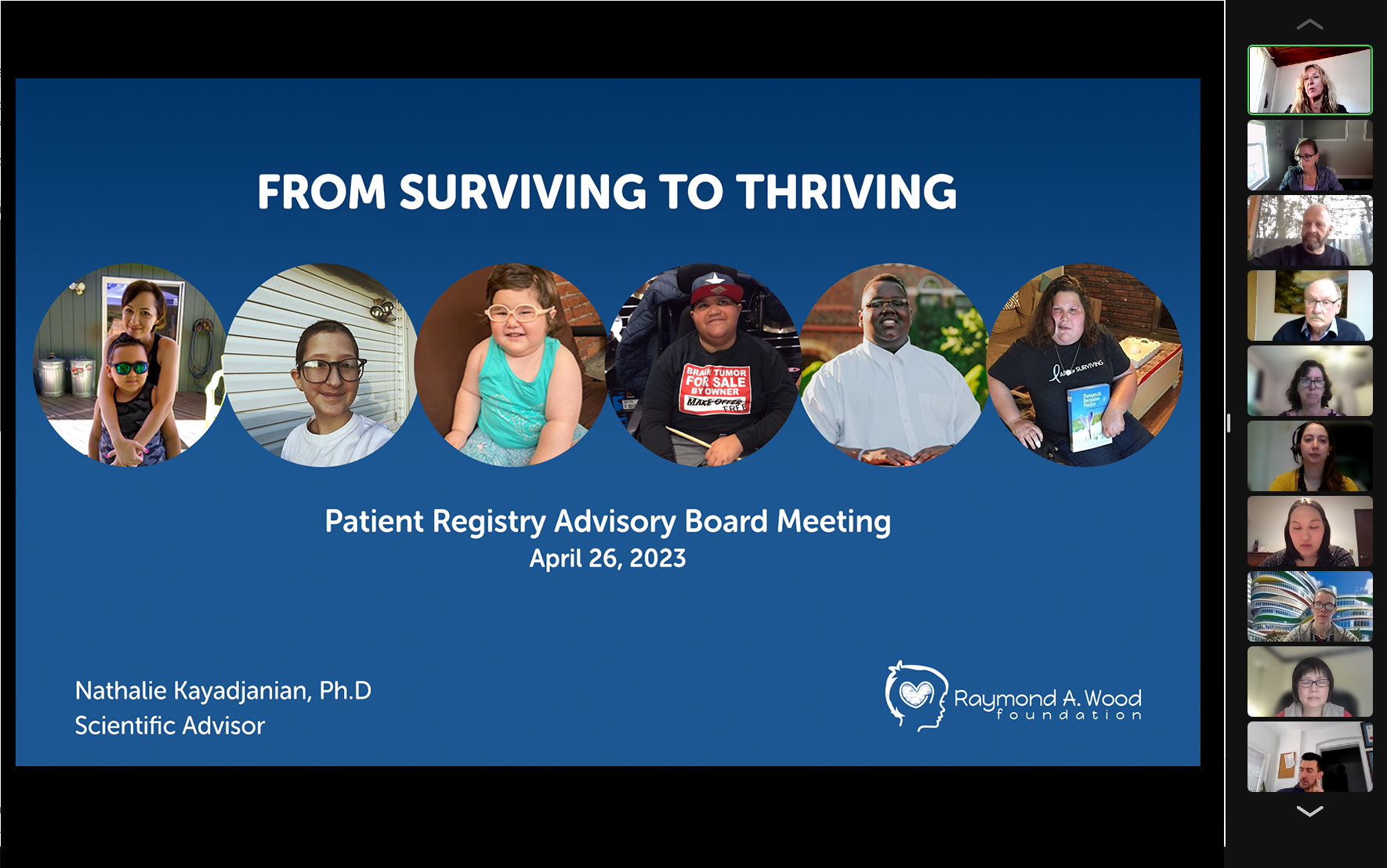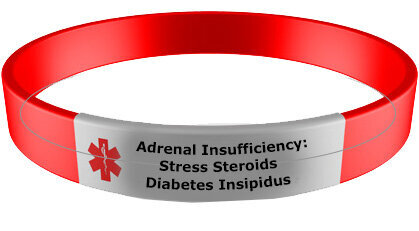The Basics of Hypopituitarism and Hormone Replacement
The hypothalamus and the pituitary gland are responsible for hormone function. Hormones are chemical messengers.
The hypothalamus is responsible for regulating the internal balance of the body (called “homeostasis”), regulating the pituitary gland’s production of hormones, and producing two hormones itself.
The pituitary gland is responsible for producing six other hormones and releasing them into the bloodstream. After the removal of an H-P tumor, the hypothalamus and pituitary gland are often damaged and can no longer make or regulate hormones. These hormones are essential for life; fortunately, there are medications that can be taken to replace the hormones that the damaged hypothalamus and pituitary gland can no longer make.
Hypopituitarism
When a person does not make an essential hormone, the condition is called “hypopituitarism.” Each missing essential hormone is associated with a medical condition and need for a replacement hormone.
Hypopituitarism can result from various causes, including:
- Tumors: Benign or malignant tumors that affect the pituitary gland can disrupt its normal hormone production.
- Trauma: Head injuries or surgeries in the region of the pituitary gland can damage its function.
- Radiation: Radiation therapy, especially when targeting brain tumors, can harm the pituitary gland and lead to hormone deficiencies.
- Autoimmune Disorders: Autoimmune diseases, where the immune system attacks the body’s own tissues, can target the pituitary gland and disrupt hormone production.
- Genetic Factors: Rare genetic conditions can lead to underdevelopment or dysfunction of the pituitary gland.
- Ischemic Injury: Reduced blood flow to the pituitary gland, often due to a stroke or other vascular events, can lead to hormone deficiencies.
The specific hormones that can be affected in hypopituitarism include:
- Adrenocorticotropic hormone (ACTH): Regulates the adrenal glands and cortisol production, which is important for managing stress and metabolism.
- Thyroid-stimulating hormone (TSH): Stimulates the thyroid gland to produce thyroid hormones that control metabolism.
- Luteinizing hormone (LH) and follicle-stimulating hormone (FSH): These hormones are crucial for reproductive function, including the regulation of menstrual cycles and sperm production.
- Growth hormone (GH): Essential for growth and development, particularly during childhood.
- Prolactin: Stimulates milk production in lactating individuals.
- Antidiuretic hormone (ADH) or vasopressin: Regulates water balance and controls the concentration of urine.
The symptoms of hypopituitarism can vary depending on which hormones are deficient. Common symptoms may include fatigue, weight loss or gain, low blood pressure, decreased libido, infertility, irregular menstruation, sensitivity to cold, and changes in body composition. Treatment typically involves hormone replacement therapy to restore hormone levels and manage the associated symptoms. The specific treatment approach will depend on the underlying cause and the hormones that are affected. If you suspect you have hypopituitarism, it’s important to consult a medical professional for proper diagnosis and management.
A Closer Look at Hormone Replacement
Dr. Craig Alter, president of the Pediatric Endocrine Society, takes us on a journey through the pituitary hormones,
This hormone is responsible for regulating growth, fat, muscle, tissue, and bone. When a person has Growth Hormone Deficiency, growth hormone injections help replace this important hormone for children and adults.
This essential hormone is responsible for regulating the body’s stress response. When cortisol is missing, the condition is called Adrenal Insufficiency and a person with Adrenal Insufficiency replaces cortisol with a type of medication called corticosteroids (e.g.: hydrocortisone). When a person with Adrenal Insufficiency is seriously ill or is vomiting and cannot absorb the oral medication, the person will require a life-saving “stress dose” injection of Solu-Cortef medicine. This is a very serious situation called “adrenal crisis” and it is extremely important to give the injection right away; not doing so could result in death.
This hormone is responsible for many functions throughout the body, including growth, and heart, muscle and digestive function; a person who is deficient in thyroid hormone has a condition called Hypothyroidism. This condition is treated by replacing thyroid hormones, thyroxine (T4) and (sometimes) triiodothyronine (T3).
These hormones are responsible for puberty, menstruation, sex drive, sperm production, and pregnancy. When a person is unable to produce sex hormones, the condition is called Hypogonadotropic hypogonadism. Males with this condition replace testosterone and females replace estrogen and progesterone.
This hormone, made in the hypothalamus, also known as antidiuretic hormone, is responsible for blood pressure and fluid control of the body. A person with vasopressin deficiency has a condition called Diabetes Insipidus, or DI. Not to be confused with sugar diabetes (“Diabetes Mellitus”), DI causes a person to be unable to regulate their fluid balance and electrolytes, and is treated with a replacement hormone called desmopressin, or DDAVP.
This hormone, although not typically replaced in people with hypopituitarism, is another hormone that is made in the hypothalamus. Oxytocin is responsible for functions including lactation and labor contractions but is also being studied as a hormone that plays a role in social bonding, autism, mood problems, appetite regulation, and more.
Hypothalamic Syndrome
When the hypothalamus is damaged by the tumor or treatment, the brain is no longer able to keep the body in balance and this can result in certain symptoms including:

- Hypothalamic obesity: this condition can cause rapid weight gain, extreme hunger, and food obsessions
- Adipsia or Polydipsia: a person with these conditions does not have an intact thirst mechanism, and it can cause a person to feel no thirst or to feel excessively thirsty
- Temperature dysregulation: this condition causes a person to have difficulty in regulating body temperature and may make warmer or colder temperatures difficult to tolerate
- Sleep difficulties: the hypothalamus is responsible for circadian rhythm, the body’s clock, and a damaged hypothalamus may cause sleep irregularities, including day time sleepiness and night time insomnia
- Energy problems: a person with this condition may experience extreme fatigue and low motivation
- Social and mood disturbance: a person with this condition may feel less interested in connecting socially, feel anxious or depressed
The Importance of Continuing Your Medical Care
Even after the brain tumor is removed, the conditions in the aftermath of an H-P tumor are chronic and require careful, lifelong management; a team of doctors work with the patient including specialists in endocrinology (hormone), ophthalmology/optometry (eye/vision), neurology (nervous system), psychiatry (emotion-behavior), and rehabilitation (physical, speech and occupational therapies). Having the conditions of an H-P tumor can feel overwhelming to manage, which makes it even more important to keep regular medical appointments and to reach out for help with questions or for support.
From the Blog

Development of Patient Registry Well Underway

Medical ID Bracelets for Panhypopituitarism Patients
Get Support
Raymond A. Wood Foundation (RAWF) is a patient advocacy organization founded by the parents of a boy with craniopharyngioma. RAWF’s mission is to improve the lives of H-P tumor patients and offers research, education, support, and other helpful resources to help H-P tumor patients and their families.

